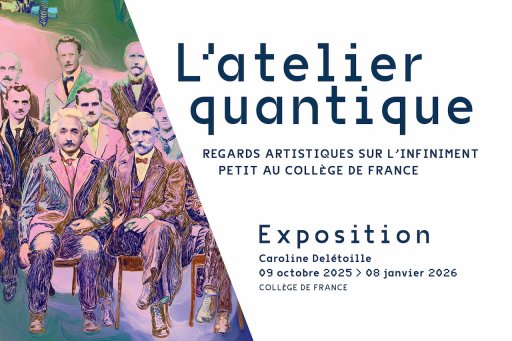What do you do for a living?
I'm a historian specializing in the Middle Ages. I'm particularly interested in the workings of judicial institutions between the 13th and 15th centuries, from a rather political perspective. Institutions are not timeless; they are created and evolve within a political context, and they therefore reveal political concerns : those of the rulers and those of society.
The first aspect of my research is very concrete: how is justice dispensed ? How is a trial conducted ? Who is present ? Who does what ? Who says what and how long does it last ? The answers to these questions are not so easy to find in the archives that have been preserved. What's more interesting is to turn the question on its head: why do archives reproduce the workings of institutions in one way rather than another ?
The second aspect concerns the relationship between justice and politics : why and how do rulers set up, then transform and reform institutions ?
Why did you choose this line of research ?
I loved history in high school. When I decided to study for a bachelor's degree in history at the University of Paris-I, I took a lecture by Professor Olivier Mattéoni on the political history of the Kingdom of France in the late Middle Ages. It was then that I realized that institutional history, although not the most fashionable subject, could be fascinating if approached from a resolutely political angle.
So I decided to do a master's degree in medieval history, and it was an interview with Prof. Mattéoni, my future thesis supervisor, that proved decisive. He suggested a little-known source, an imposing judicial register from the 15th century.
This archival document, in Latin mixed with Old French, was the starting point for my research. I didn't understand it at first, but I immersed myself in it during my Master's degree, and it stayed with me right through to my doctorate. That famous lecture on the political history of the Middle Ages in undergraduate studies proved to be a decisive factor !
How did your work as a doctoral student go ?
It was very solitary... and very collective at the same time. Writing a thesis in the history of the Middle Ages means not only being part of a vast field of research, but also acquiring solid technical skills : Latin, Old French and, of course, palaeography, i.e. the reading of ancient writings. These technical skills are essential for understanding archives.
In addition to my thesis supervisor, there were many exchanges within my laboratory (the Laboratoire de médiévistique occidentale de Paris) and elsewhere, which shaped my research and my writing of history.
Throughout my doctorate, I also had the opportunity to teach, first at the University of Paris-I and then at the University of Franche-Comté.
And finally, I took up a happy challenge : I had a child. I'm far from being the only one, but for many reasons I think this deserves to be mentioned in the CVs of female researchers !
Can you tell us more about your thesis ?
My thesis was on the Grands Jours, which were ephemeral courts temporarily detached from the Paris parliament in several towns of the kingdom. In the Middle Ages, the Parlement was the kingdom's highest court of justice, which ruled on appeals as a last resort. Just after the end of the Hundred Years' War, the "Grands Jours" were an opportunity to revive and accelerate the course of justice after a period of crisis. They were part of the very strong relationship that existed in the Middle Ages between justice and peace. In the aftermath of the long conflict with England in the 15th century, they testify to a strong desire to restore judicial institutions.
By studying the Grands Jours from the registers of these judicial sessions, which have been preserved, I have sought to understand not only the practical workings of royal justice, but also what might be called the " judicial policy " of royalty, i.e. the political reasons why so much attention is paid to the smooth running of justice.
![[alt_53a0d5a7-47c6-4cba-93fc-39a098cf32f3]](/sites/default/files/inline-images/Parlement_Paris_Charles7.jpg)
What are you currently working on ?
My current research focuses on the question of power of attorney. The medieval king is a king of justice : he is the source of all justice. Much attention has been paid to the fact that judges dispense justice in the name of the king, that they represent him. But we know far less about the mechanism by which prosecutors represent those subject to the law. And yet, there's an interesting phenomenon: in the Parliament, at the beginning of the 14th century, only a few privileged people were represented by a procurator, i.e. a professional who took care of all the steps involved in a lawsuit, such as obtaining the necessary documents and having them produced, managing relations with the lawyer, and so on. A century later, all litigants, almost without exception, are represented by a prosecutor. One of the reasons for this change was that, by the end of the Middle Ages, legal proceedings were becoming much more complex, and professionals were needed to ensure the smooth running of a case. But what is striking is that trials and judgments are rendered and recorded in the archives as if the king and the litigants were present and speaking in their own name : this is a fiction, as there are only judges who render decisions in front of prosecutors and lawyers. I'm interested in how and why this fiction came about.
I'm working on this project as a temporary teaching and research associate (ATER) at the Collège de France. My time is divided between my personal research and the activities of Pr Patrick Boucheron's chair, to which I am attached. Within this framework, I am in charge of the online magazine Entre-Temps, which focuses on all forms of writing, teaching and transmitting history.
What have you learned from these experiences ?
I'm very happy to be working at the Collège de France : the conditions are ideal for research and, as a young historian, working with Patrick Boucheron is a great opportunity.
As an ATER, I don't have any lectures to give this year, which leaves me precious time for research : this is a first, because in parallel with my thesis, I've always taught at university, and in fact I intended to go into teaching by passing the agrégation.
I also learned a lot from my work with Entre-Temps magazine . My outlook and perception of history have broadened considerably, beyond the academic and school discipline. History can be experienced and taught in many different ways.
----------
Élisabeth Schmit is an ATER in the History of Powers in Western Europe, XIIIᵉ-XVIᵉ century chair held by Pr Patrick Boucheron. She is the editor of the magazine Entre-Temps.
Photo © Patrick Imbert
Interview by Océane Alouda












